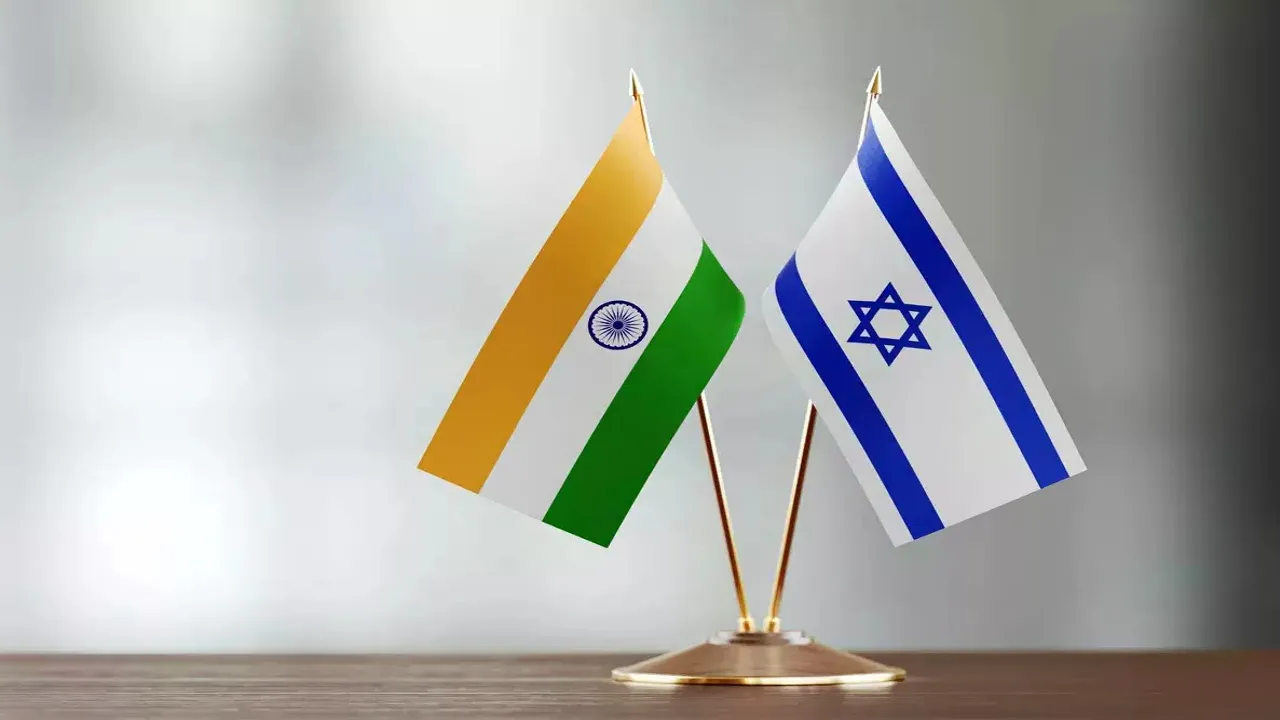New Delhi
It is not business as usual for Indian industry and trade amidst an escalating Israel-Hamas conflict as businesses and markets gear up for the real impact on outbound and inbound transactions, flow of goods and services and deals, clouded by uncertainties on the duration and intensity of the war.
At stake is the India-Israel bilateral trade in merchandise and services sectors which in FY 2023 is estimated to be USD12 billion, according to GTRI. The India-Israel bilateral services trade of an estimated USD 1.3 billion could be impacted if the war spreads wider to involve bigger parts of Israel. The key worry, though, is over India’s merchandise exports to Israel and imports, which for FY2023 were USD 8.4 billion and USD 2.3 billion respectively, leading to a merchandise trade surplus of USD 6.1 billion.
While the jury is still out on the enormity of the damage that the situation can inflict on commerce and business exchanges between India and Israel, the diamond trade is widely expected to bear the brunt of the hostilities. One of India’s key exports to Israel is cut and polished diamonds, which amounted to USD 1.20 billion in 2022-23. India also imports rough diamonds to the tune of USD 519 million as well as cut and polished diamonds of USD 220 million.
“We are watching the situation very closely,” Kirit Bhansali, vice chairman of the Gems and Jewellery Promotion Council (GJEPC) Bhansali told the Sunday Guardian. “The war is certainly a very dismal development at a time when our export is down because of the recession in the US and slowdown in China. As an industry we have grown together and complement each other,” adds Bhansali who highlights that India’s imports of rough diamonds from Israel total up to merely 3 per cent of India’s overall import of rough diamonds from around the world. “We have a strong relationship with the Israel diamond industry as well as the Government and are cooperating with each other, hoping that the situation will not affect the diamond trade between India and Israel,” he told Sunday Guardian.
Ajay Srivastava, Founder of GTRI, a technology and trade research group agrees that India’s exports of cut and polished Diamonds is unlikely to significantly impact India’s gem and jewellery trade with Israel, as Israel primarily serves as a re-export market and is not a diamond consumption centre per se.
Although India remains as the fastest growing economy amongst large ones, Amnish Aggarwal – Head of Research, Prabhudas Lilladher sees the confluence of rising geopolitical uncertainty whipped up by the Israel war, firm crude prices amidst rising uncertainty in the Middle East and higher interest rates in USA possibly impacting foreign institutional investor (FII) flows to emerging markets. According to Jayden Ong, Senior Market Analyst, Asia Pacific, at Vantage, a multi-asset CFD broker in India, the market has experienced a state of panic following the developments arising from the war between Israel and Hamas. Presently, explains Ong, there is a prevailing concern within the financial markets regarding the potential protraction of the ongoing conflict, leading to sustained upward pressure on crude oil prices. “In conjunction with the OPEC+ production reduction agreement, this scenario is anticipated to contribute to a persistently elevated inflation rate. Consequently, central banks in diverse nations are expected to uphold elevated benchmark interest rates, a measure that may exacerbate the economic downturn,” suggests the analyst.
On the home front, an expected impact on Indian exporters is that of higher risk premiums and shipping costs. For merchandise exports of India, the war may lead to higher insurance premiums and shipping costs, cautions Srivastava. “India’s ECGC may charge higher risk premiums from Indian firms exporting to Israel. While this may reduce their profits, trade volumes could also come under pressure if the war escalates,” he notes.
However, a bigger challenge to trade comes from any disruption in operations at the three largest ports of Israel — Haifa, Ashdod and Eilat. These ports handle shipments in agricultural products, chemicals, electronics, machinery and vehicles, according to Srivastava. A spokesperson of the Adani Ports and SEZ which acquired Israel’s Haifa port earlier this year, said the company was closely monitoring the action on ground which is concentrated in South Israel, whereas Haifa port is situated in the North. “We remain fully alert and prepared with a business continuity plan that will enable us to respond effectively to any eventuality,” the spokesperson.
“India’s merchandise trade with Israel happens mostly through Eilat port, located on the Red Sea. Fortunately, so far there is no report of port disruption,” points out Srivastava. The real impact, though, would depend on the duration and intensity of the war, he suggests.
An increase on these counts could cast shadow on Israel’s supply of electronics and telecom components to India like ICs, parts of photovoltaic cells, the imports of which are worth USD 411 million. India also ships out from Israel, fertiliser like potassium chloride, with imports of USD 105 million and Herbicide to the tune of USD 6 million.
Experts also flag concern over the India-Israel bilateral services trade which is estimated to be around USD 1.3 billion. A major services trade component between the two countries is information technology (IT). India exports a wide range of IT services to Israel, including software development, IT consulting and data processing. A big ticket item is research and development (R&D) where India and Israel have a strong collaboration in the areas of agriculture, water technology and renewable energy.

